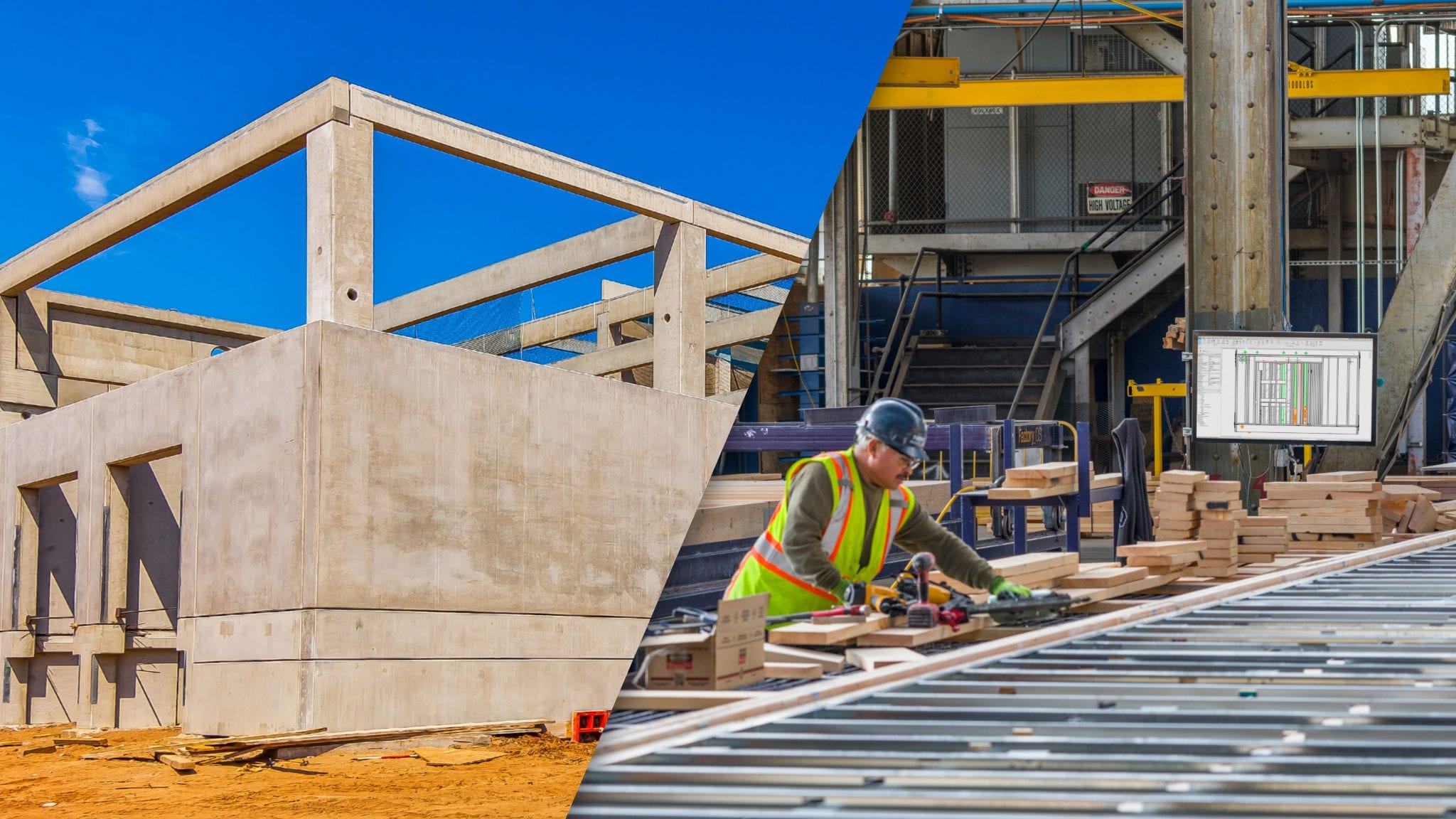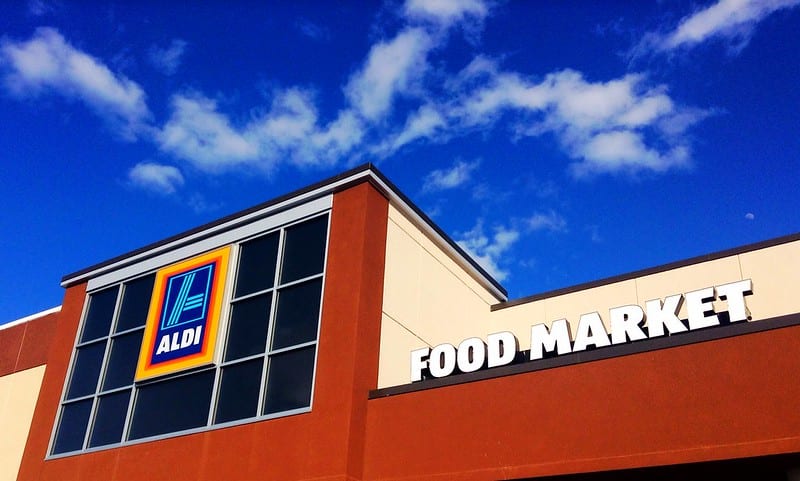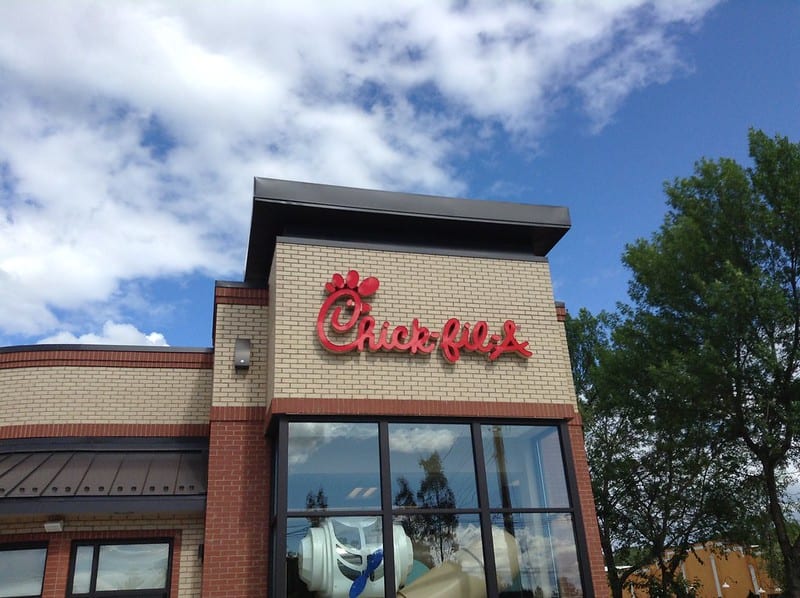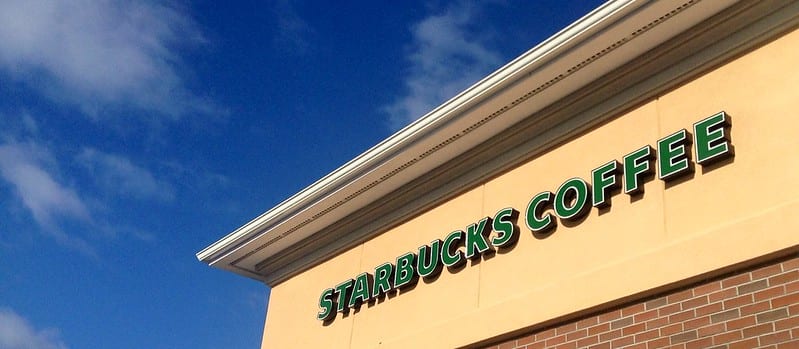
Competition is fierce in the realm of retail and hospitality. Consumers have more choices than ever before and shoppers today have sky-high expectations when it comes to the customer experience.
Forward-thinking companies know that winning over shoppers requires getting a number of things right; they need to sell great products, offer superior customer service, and continuously innovate and keep up with consumer trends.
They also know that to stay competitive, companies must expand their empires and establish a strong presence in key markets and locations.
In order to do that quickly and at scale, the top owners in the retail and hospitality industry are deploying innovative construction methods to rapidly grow their footprints and be where their customers are at.
In this article, we’ll explore how some of the hottest and fastest-growing retail and hospitality companies are building their empires through advanced construction methods.
Take a look below.

Aldi is a German discount supermarket chain with over 10,000 stores in 20 countries. For over 40 years, the family-owned business has operated with a no-frills grocery experience that focuses on offering high-quality foods at affordable prices. Aldi strives to provide a quick and easy shopping trip for its customers, with many of its stores having just 4-5 aisles and all the essentials. Since Aldi's locations don't have non-core services such as banking or pharmacies, the company can operate in a more cost-effective way, and it passes on those savings to shoppers.
The National Retail Federation recently listed Aldi as one of the fastest-growing retailers of 2020; the grocery chain saw an 8% growth in 2019 and currently has more than 2,500 US stores and counting.
Aldi isn't showing any signs of slowing down, even during a pandemic. The retailer is doubling down on its US presence and it's on track to become the third-largest grocer in the country by the end of 2022.
According to Construction Dive, Aldi is investing over $5 billion to open hundreds of new locations and remodel thousands of its US stores.
As part of this expansion, Aldi recently opened an extra large store in Philadelphia, which features 15,000 square feet of selling floor across 6 aisles. The store is located on the ground floor of a 14-story residential building, demonstrating the company’s initiatives to keep up with a recent trend of including food retailers within mixed-used residential properties.
It’s important to note that Aldi isn’t taking a one-size-fits-all approach to its growth strategy. The grocer recognizes that while certain areas could benefit from large stores, that same format won’t work in a crowded area like South London. For these places, the company launched Aldi Local — a smaller format store that stocks 300 fewer products than a standard Aldi location.
Another thing worth commending is Aldi’s use of innovative construction practices like modular construction and prefabrication. According to HTS, Aldi makes use of prefab for its supermarkets "almost as standard.”
As a result, Aldi is able to quickly and easily replicate its supermarkets, creating consistent yet flexible stores that appeal to shoppers.
Aldi’s flexibility with construction shows the grocer’s willingness to adapt to the needs of various customers — which is a must for any retail or hospitality owner looking to expand their empire.

Chick-fil-A has seen rapid growth in the past few years, having gone from the seventh-largest fast-food chain in the US to become the third. In 2019, the company overtook Subway, Taco Bell, and Burger King in systemwide sales, and data from Business Insider shows that in 2018, Chick-fil-A was number 1 in terms of average unit volume.
Chick-fil-A’s success can be attributed to a number of things, including scrumptious food items and clever marketing, but where the chain truly shines is with its customer experience.
Chick-fil-A has the best customer service in the fast-food industry. There is a strong customer-first culture at the company and Chick-fil-A focuses on serving diners quickly without compromising quality. In 2020, it topped the American Customer Satisfaction Index with a score of 84 out of 100.
Chick-fil-A also adopts and implements relevant technology to improve the customer experience. The company was one of the first to adopt mobile ordering and it started using tablets to streamline drive-thru orders.
Chick-fil-A’s willingness to embrace technology and innovation can also be seen in its construction initiatives, ultimately helping them to deliver restaurants to their customer-base faster.
In 2019, Chick-fil-A wrote about how the company started using industrialized construction in the design of its stores to reduce waste and promote sustainability. Rather than implementing traditional building methods, Chick-fil-A has started constructing sections of its buildings off-site to save time and improve consistency.
What's more, Chick-fil-A is following Lean Construction principles, allowing its teams to “be more intentional with resources and comply with LEED (Leadership in Energy and Environmental Design) certification volume standards.”
Chick-fil-A’s efforts have yielded excellent results — both for its business and the planet. According to the company, it’s been able to reduce construction waste by 50% and it saw a 40% reduction in the length of the total construction schedule.
The company's use of modular construction can be seen in its Roswell, Georgia location. According to QSR Magazine, sections of the restaurant were constructed off-site and shipped to the location to be pieced together.
This approach allows the company to build its restaurants in a controlled setting, thus creating safer working conditions that aren't susceptible to delays due to weather conditions and other external factors.

A company that needs no introduction, Starbucks has been a major force in the retail and hospitality industry for decades— and it doesn’t plan to slow down anytime soon.
Starbucks reportedly expects to have 55,000 locations by 2030, an increase of 70% from the 33,000+ units that are operating today.
Part of Starbucks’ strategy involves closing underperforming locations while shifting to a new store format — dubbed “walk thru” locations. Geared towards dense and busy metropolitan areas, these stores are smaller compared to standard Starbucks locations and won’t offer any seating.
Starbucks has also been investing in green construction. The coffee company recently established a greener and sustainability-constructed drive-through in Abbotsford, British Columbia.
The modular building, which was constructed in just six days, produces near-zero waste and utilizes energy and water-efficient facilities. Starbucks' new location is LEED-certified and the company intends to construct 10,000 greener locations by the year 2025.
According to the Starbucks website:
In our next evolution of Green Building we are going beyond designing, building and renovating our stores to LEED standards. We are developing a new store verification program that drives innovation, sustainability and efficiencies throughout our store portfolio. We are partnering with experts including SCS Global Services and World Wildlife Fund, to develop a new, open-sourced Starbucks Greener Stores operations framework. Through this program we will ensure Starbucks stores continue to minimize their environmental footprint and contribute to a sustainable future. These standards will ensure Starbucks stores are effectively operated to achieve water and energy efficiency, divert waste, are built with responsible materials, are powered by renewable energy and deliver a heathy environment for our partner and customers – promoting engagement in sustainability.
In an age when sustainability and efficiency are more important than ever, forward-thinking retail and hospitality owners should strive to implement innovative construction methods — such as prefabrication and modular construction — in their projects.
Doing so will enable you to reduce waste, accelerate project timelines, and experience better outcomes overall.
